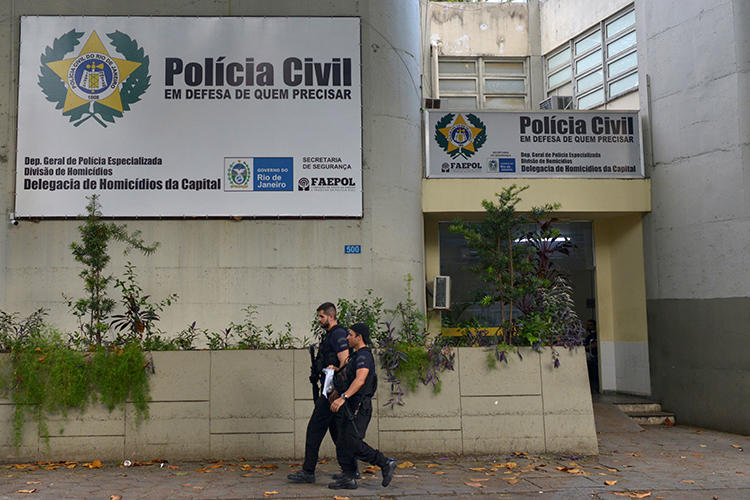São Paulo, June 20, 2019 — Authorities in the Brazilian town of Maricá, in Rio de Janeiro state, must thoroughly investigate the killing of journalist Romário Barros and determine whether the attack was tied to his journalism, the Committee to Protect Journalists said today.
On June 18 at about 7 p.m., a masked man shot Barros, owner and reporter at local news website Lei Seca Maricá, at least three times before getting into a car and driving away, according to Brazilian daily O Globo. Barros died at the scene, according to O Globo.
None of Barros’ belongings were taken, and a report by local news outlet O Dia said that police believe the killing was ordered.
The Rio de Janeiro state police issued a statement, reviewed by CPJ, saying they had opened an investigation into the killing. The police did not reply to additional phone calls and questions emailed by CPJ.
The killing comes 24 days after Robson Giorno, the proprietor of local news website Jornal O Maricá, was killed in the same city, as CPJ reported at the time. CPJ has not determined whether Giorno’s killing was related to his work. Police have announced no arrests in either case.
“The killing of two journalists in less than a month in Maricá is outrageous, and is certain to have a chilling effect on other local reporters if authorities do not take appropriate action,” said CPJ Central and South America Program Coordinator Natalie Southwick in Mexico City. “Brazilian authorities should fully investigate whether Romário Barrio’s killing was related to his reporting and take swift action to bring those responsible to justice.”
The 31-year-old reporter founded Lei Seca Maricá in 2010, said Paulo de Almeida Celestino, president of the Maricá Press Association, of which Barros was a founding member. The site covers local crime, transportation, culture, and political news.
“He lived there in the police station. They were partners; when they went out on a raid, they called him and said, ‘We’re going to arrest someone, you can come along,'” Marcelo Bessa, a local journalist and friend of Barros, told CPJ by phone. “And so, he was always first on the scene of the crime.”
“He said what he had to say, and that angered some people, but he was not scared,” Celestino told CPJ. He said Barros never mentioned receiving any threats.
CPJ research shows that Brazil’s deadly violence hits provincial journalists more frequently than their colleagues in major urban centers.
